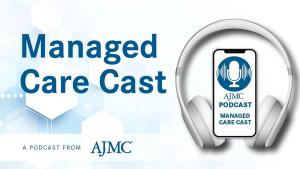
Panelists discuss how the economic toll of poor LDL-C control demands workplace and systemwide prevention strategies.
As a practicing cardiologist at Providence Heart Institute in Portland, Oregon, and the medical director of Providence's Center for Cardiovascular Analytics, Research, and Data Science, Gluckman an brings deep experience in both patient care and health system transformation. The conversation covers remote patient monitoring, digital health tools, and the role of value-based models in promoting optimal therapy.

Panelists discuss how the economic toll of poor LDL-C control demands workplace and systemwide prevention strategies.

Panelists discuss how long-term LDL-C exposure heightens cardiovascular risk, making early and sustained lowering crucial.

Panelists discuss how improving adherence to LDL-lowering therapies is essential for sustained cardiovascular protection.

Panelists discuss how payer controls and prior authorization policies delay and derail LDL-lowering therapy.

Panelists discuss how PCSK9 inhibitors remain underused due to access, cost, and adherence barriers.

Panelists discuss how nonstatin agents are chosen and when combination therapy should be introduced for high-risk patients.

Panelists discuss how global LDL thresholds below 55 mg/dL influence care and challenge U.S. practice to evolve.

Panelists discuss how reinstating LDL-C targets in quality programs could improve outcomes and accountability.

Panelists discuss how substituting LDL outcomes with statin-use metrics weakened cholesterol management quality.

Panelists discuss how removing LDL-C targets in 2013 shifted focus from outcomes to statin use, weakening control efforts.

Panelists discuss how social determinants such as access, income, and literacy drive disparities in LDL-C control.

Panelists discuss how real-world programs like PROMPT-LIPID expose undertreatment patterns and guide care improvement.

Panelists discuss how pharmacy-related delays and limited escalation practices widen LDL-C management gaps.

Panelists discuss how: clinical inertia, patient apathy, and the asymptomatic nature of high cholesterol all contribute to undertreatment and poor outcomes.

Panelists discuss how: LDL-C control remains a national crisis, with many patients not on therapy or failing to reach target levels despite the availability of effective treatments.

Experts agree that developing value-based care models for atrial fibrillation requires collaborative, data-driven strategies—leveraging clinical pharmacists for personalized medication management and prioritizing stroke prevention and rhythm control—while embracing innovation and workforce redesign to balance quality, cost-effectiveness, and avoid overdiagnosis in an evolving health care landscape.

Experts highlight that applying value-based payment models to atrial fibrillation care requires flexible, team-based approaches focused on reducing hospitalizations, repeat procedures, and stroke, with cardiology groups—supported by pharmacists managing complex therapies—best positioned to deliver comprehensive, quality-driven care that addresses both AFib and its cardiometabolic comorbidities.

Experts note that implantable loop recorders are valuable for detecting infrequent arrhythmias and guiding anticoagulation decisions post-cryptogenic stroke or atrial fibrillation ablation, but due to high costs and limited cost-effectiveness, their use should follow initial short-term monitoring and be tailored to individual patient risk, with ongoing research needed to optimize clinical and economic outcomes.

Experts highlight that while universal screening for subclinical atrial fibrillation remains unsupported by current evidence, targeted screening of high-risk populations using data-driven approaches, combined with proactive management of cardiometabolic risk factors, offers a promising path to improve outcomes and optimize resource use.

Experts emphasize that remote patient monitoring (RPM) is most effective when supported by structured care teams and workflows, with artificial intelligence–enabled tools helping to interpret data and guide timely interventions—making RPM a vital component of personalized, proactive arrhythmia management.

Experts highlight that well-integrated electronic health records and wearable devices can enhance diagnostic accuracy and patient engagement in arrhythmia care, while emphasizing the importance of combining technology with comprehensive clinical evaluation to guide efficient, personalized testing.

Experts discuss how choosing the right cardiac rhythm monitor involves balancing symptom frequency, patient risk, and device capabilities to ensure efficient, cost-effective, and patient-centered diagnosis while avoiding unnecessary testing.

Experts discuss how arrhythmia evaluation is tailored based on symptom frequency, severity, and patient risk, using a stepwise approach from short-term to extended monitoring to guide timely and effective diagnosis and management.

Experts discuss how rising arrhythmia burdens and workforce challenges are driving a shift toward team-based care, smarter diagnostics, and artificial intelligence–driven risk stratification to improve outcomes and efficiency.

Experts discuss the persistent clinical and systemic challenges in diagnosing and treating atrial fibrillation, emphasizing the need for earlier identification—especially in high-risk, comorbid populations—while highlighting the limitations of current risk models, the complexity of managing atrial fibrillation burden, and the importance of integrating wearable data into precision-based care without overburdening clinicians or compromising clinical relevance.

Experts discuss the multifaceted management of atrial fibrillation, stressing the importance of addressing comorbid conditions alongside the arrhythmia itself, while highlighting the challenges of underdiagnosis, the rise of subclinical cases detected through wearable technology, and the need to align emerging diagnostic tools with evidence-based care to avoid unnecessary interventions and optimize outcomes.

Experts discuss the complex clinical and economic challenges of atrial fibrillation, emphasizing the need for personalized care that balances symptom management, stroke prevention, and risk factor control—while recent evidence on subclinical atrial fibrillation highlights the limitations of widespread anticoagulation, reinforcing the importance of targeted, value-based strategies for optimal outcomes.

Experts discuss the growing role of early detection and predictive strategies in managing arrhythmias—particularly atrial fibrillation—highlighting the impact of wearable technology, challenges in diagnosis due to intermittent symptoms, and the shift toward more personalized, value-based care driven by timely evaluation and evidence-based interventions.

The analysis highlighted a shift in heart failure diagnoses, with hypertensive heart disease with and without chronic kidney disease as prevalent diagnoses, underlining coding variability and implications for research.

Explore innovative strategies to enhance heart failure treatment through guideline-directed medical therapy, remote monitoring, and artificial intelligence–driven solutions for better patient outcomes.

Published: August 14th 2025 | Updated:

Published: August 5th 2025 | Updated:

259 Prospect Plains Rd, Bldg H
Cranbury, NJ 08512
© 2025 MJH Life Sciences®
All rights reserved.
